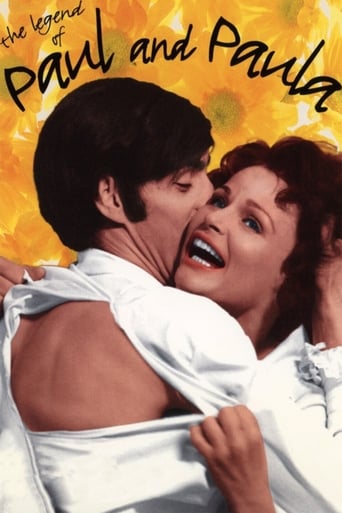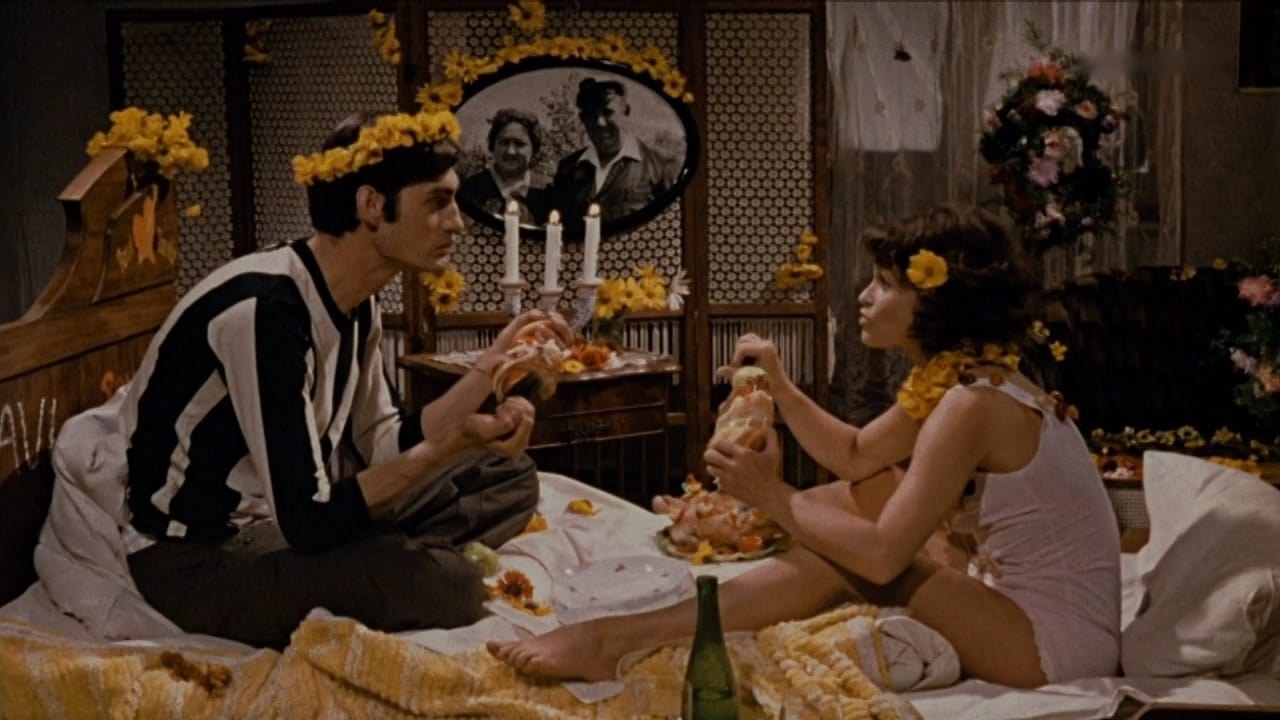carrysa78
The legend of Paul and Paula is a very popular film in East Germany. By the way, its the favorite movie of Chancellor Angela Merkel.Before you watch that movie you must consider two things: the film was made in the GDR with the possibilities they had in the GDR-System and it was not possible to criticize the system in an open way. That means they always had to criticize between the lines.I don't like to reveal too much, but I like to explain what the film is about:We meet a single woman Paula which raises her child alone. She meets another bloke and becomes pregnant again, but he cheats on her as well. Paula is a 20 something and feels unhappy in her life. She is young, but it seems that nothing is going on in her life anymore. Paula watches all the happy couples around her, but she is alone. There is an older admirer (Herr Saft) which she could marry, but she does not love him. Paula makes an decision: it would be good to marry this older men in a material way and for her children. But before she agrees, she likes to paint the town red for a last time.In a disco she meets Paul, who is very successful in his job, but he is unhappy in his marriage. They fall in love with each other...but he will not leave his family because of the expectation of society etc. There are some heartbroken scenes. A wonderful love movie.It is up to you,if the film has an Happy End. Just be open and enjoy.
Horst in Translation (filmreviews@web.de)
"Die Legende von Paul und Paula" or "The Legend of Paul and Paula" is an East German German-language film from 1973, so this one is already over 40 years old. It runs for almost 100 minutes and is today considered one of the best GDR movies in retrospective. I agree partially with that. My personal opinion is sadly that the GDR was not a good country at all when it comes to their cinematic achievements, so by general standards it is an okay movie, but compared to other GDR films I believe that this one does indeed stand out from the very weak rest. It probably also helps that this is a color film. I cannot see this film by Heiner Carow and Ulrich Plenzdorf as relevant in depicting life in the GDR. It does not make an impact in terms of politics or society I think. It is, however, worth checking out because it is a solid romance movie that is pretty bleak and sometimes even devastating. The movie lives through the two title characters and the way they are portrayed and depicted, especially Angelica Domröse's Paula. Yes there are moments of blatant overacting, but this is basically the case in 90% of all 1970s films, especially the German ones. There were some good parts, some not so good, but overall the positive outweighs the negative. I also liked the introduction of the two characters that we meet them long before they become a couple actually. As a whole, I am not sure this film should be as popular as it is today, but at least it's evidence that not every GDR movie is a failure. This is one of the rare successes. I recommend the watch, thumbs up.
Emil Bakkum
The film "Die Legende von Paul und Paula" is the answer of DEFA to the western Flower Power movement in the sixties. And although normally the Bolshevist film makers have a habit of ridiculing western (bourgeois) cultural phenomena, in this film they look kindly upon the sensual life of the hippies. The result is a bitter-sweet story. Bitter, because Flower Power is a counter culture, that revolts against the powers that be. The relation between the young lovers Paula and Paul is passionate and bold. For Paul is still married, albeit with a pawky and deceitful woman, a pauper and a pouter, in an affair that from the start never had a chance. And Paula is a mother of two children, just separated, because her husband could not remain faithful. Evidently marriage can be a vexation. The relation between Paula and Paul develops on feelings of passion and attraction. For on the level of cognition they are very different. Paul is a well-paid worker in the medical profession, and looks forward to a brilliant career. Paula works as check-out lady in a supermarket (does this mean something?). Some would call her a Paul Pry. But she possesses a fantasy, a despairing joy and a cheerful nature, that gradually undermine Pauls narrow-minded objections against a new steady relationship. There is sorrow too, for instance when Paulas little boy is killed in a road accident. Finally, after much amorous pow-pow, in the end the couple is united. But the union will not last. For Paula insists on having a child from Paul, even though because of physical inaptness the birth will most likely kill her. She is passionate until the end. Her death is the rebirth of Paul, who now under his own power adopts her sensual and joyous life style (with three kids, two from their former marriages, plus the mutual one). The timeless freedom of their affair is supported by the music of the GDR rock band "Die Puhdys", and by psychedelic scenes of Paula and Paul in a bed of flowers, floating on a river. The contrast with an earlier scene, where they make love in a pound, is immense. Of course this film is not unique. It follows the typical pattern of those days, just like for instance the Dutch film "Turks fruit" (also ending with the death of the female), and the American "Hair". But although I grew up in those years, I am still unable to give a convincing interpretation. There is something about sexual liberation and ill-fated relations. Beyond that, the behavior of the main characters is clearly unhealthy - just like Flower Power itself was unworldly and not viable. Perhaps the message is that there is always hope, and you should smile even in times of humanitarian shortcomings. We are just pawns in life's game. Let us call it a kind-hearted film with many qualities, that deserves more than it gets - like often on IMDb.
andre-71
This picture, which has been shown in East Germany for only a week until political censors understood its impact on the people, is a very realistic East German view of life in post war East Berlin. It's mainly about the romance of Paul, a privileged but unhappy secret service agent, and Paula, an underprivileged and single girl with children. Since it is one of the very few movies which portraits honest details of real life in East Berlin at that time, it now serves as a reminder of emotions and feelings for a lot of East Germans. Despite the heavy use of symbolism (pretty old houses are blown away for the construction of uniform socialist buildings) it still doesn't draw a too pessimistic picture and leaves space for dreams and hope. I really love this movie, and I would recommend it to anyone who wants to catch a glimpse idea of how life was at that time in a socialistic system. The film is available with English subtitles which gives foreigners the chance to understand it, too.


 AD
AD

